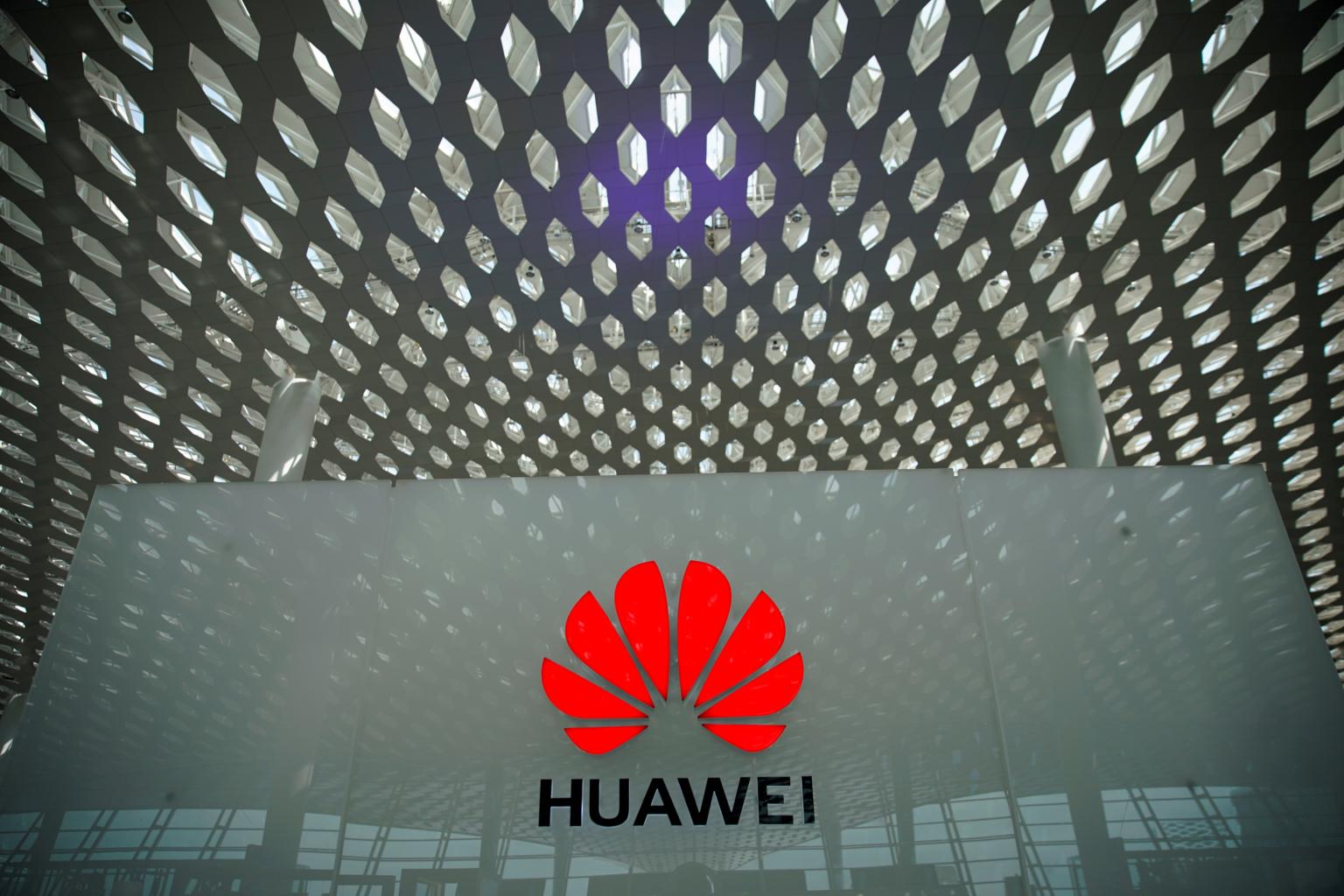Huawei gets only partial reprieve from tough Trump sanctions
Sign up now: Get insights on Asia's fast-moving developments

Huawei remains squarely on the US Commerce Department's "entity list" usually reserved for rogue regimes and their associated companies.
PHOTO: REUTERS
Follow topic:
BEIJING (BLOOMBERG) - Huawei Technologies Co. Ltd got a much needed reprieve from some of the trade sanctions levelled against it by the United States when President Donald Trump said over the weekend he would ease restrictions on the Chinese tech giant.
In a sign of market bullishness, shares of Huawei suppliers rallied around the globe on Monday (July 1), with Taiwan's Largan Precision surging 10 per cent in Taipei and Taiyo Yuden rising 15 per cent at the close in Tokyo.
NeoPhotonics Corp., which gets half of its sales from Huawei according to Bloomberg supply chain data, soared as much as 21 per cent in New York, it's biggest intraday gain in almost a year. Micron Technology Inc. was also up. Nokia Oyj and Ericsson AB, Huawei's major 5G gear rivals, opened lower in Europe.
But constraints on Huawei's business abound and some analysts said the optimism is overdone - with many still trying to figure out what form the relief will take.
Huawei remains squarely on the US Commerce Department's "entity list" usually reserved for rogue regimes and their associated companies.
US lawmakers from both parties have also reiterated pleas to not to let up on Huawei.
On Sunday, White House National Economic Council Director Larry Kudlow said Trump didn't offer a "general amnesty" to the world's second largest smartphone maker and telecom gear titan.
"There were few concrete details about when Huawei can be removed from the entity list," said Jeff Pu, a Hong Kong-based analyst at GF Securities. "But investors are showing optimism without waiting for a final outcome."
Pu said that Huawei would be waiting to see which US companies will resume shipping and whether companies like Google and Qorvo Inc. are among them. Both Google's Android OS and Qorvo's radio frequency chips are key to Huawei's smartphone business.
The Trump administration hasn't said whether it will remove Huawei from the blacklist, or indicated any specific time frame for considering such a move.
Trump said US companies can sell their equipment to Huawei "where there's no great national security problem with it". He didn't define what he considers a national security threat or specify which companies can apply for shipment licenses.
Brock Silvers, managing director at China-based fund Kaiyuan Capital, said that despite claims that only a subset of exports to Huawei will be allowed, the ramifications are significant.
"This weekend's agreement can only weaken US claims regarding Huawei's inherent security risk," he said.
"It's tough to argue that Huawei's Android handsets are a security threat," Raymond James analysts Chris Caso and Melissa Fairbanks wrote in a note on Monday. "We therefore think there's a chance that handset components will again be permitted."
Nicole Peng, an analyst with research firm Canalys, said it would be "a big win" for Huawei if Google could get a temporary license and continue its business with the company.
"In the meantime, for the American suppliers whose business is heavily exposed to Huawei, and a ban would benefit other non-American competitors, getting a license should also be relatively easy," Peng added.
Huawei has not been able to source key components such as radio frequency chips from Qorvo and Skyworks or the latest Android operating system from Google since the Commerce Department in May blacklisted Huawei and scores of its affiliates around the globe from doing business with U.S. companies.
Given such sourcing restraints, Huawei said it was preparing for a drop in international smartphone shipments of up to 60 million units this year, partially because the Trump ban would cut off Huawei's access to an array of Google's services from Play Store to YouTube and Gmail on Huawei handsets.
One employee of an Asian supplier to Huawei, who asked not to be named because the discussions were private, said that statements from Trump and Kudlow could be just part of negotiations, and that Huawei suppliers would need to wait for more details.
American companies are certainly keen to resume business with their key Chinese customers as they could suffer from being replaced by foreign competitors, that person added.
Even before Trump's Osaka announcement, a number of American suppliers including Micron and Intel Corp. had already resumed selling certain products to Huawei after concluding there are legal ways to bypass the ban.
The chipmakers are taking advantage of certain exceptions to the US export restrictions. If less than 25 per cent of the technology in a chip originates in the US, for example, then it may not be covered by the ban, under current rules.
Some in China are painting Trump's reversal as a victory for Huawei.
"Trump allowing continuous supplies to Huawei is actually a forced concession, not a friendly conciliation with China," said Zhu Min, former deputy managing director of the International Monetary Fund who now serves as director of Tsinghua University's National Institute of Financial Research.
Zhu's comment came after a tweet by Global Times Editor-in-Chief Hu Xijin, who has a track record of accurately forecasting retaliatory moves from China during the trade talks.
"The laws of the economics are stronger than the will of US government," Hu tweeted. "US tariffs can disrupt global supply chains, but cannot reshape them."

